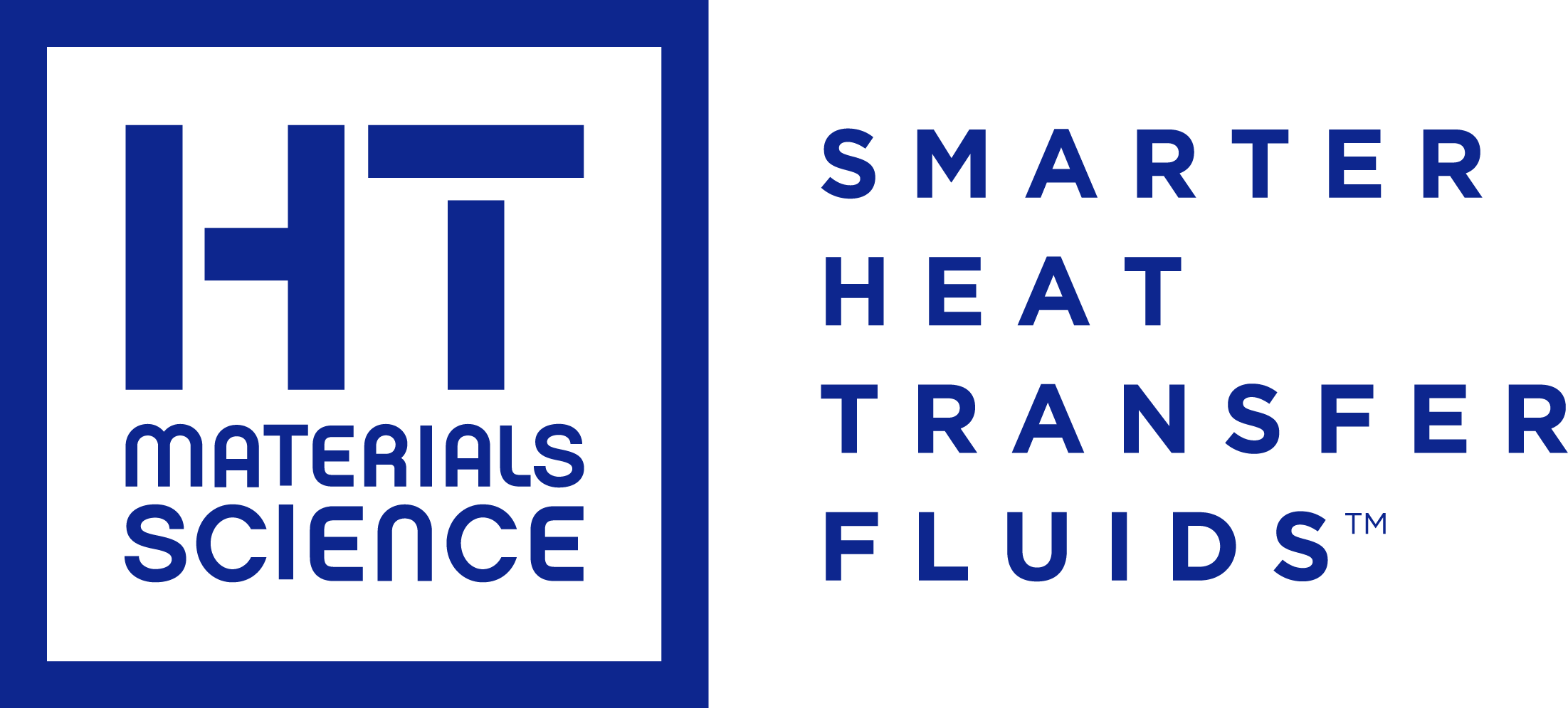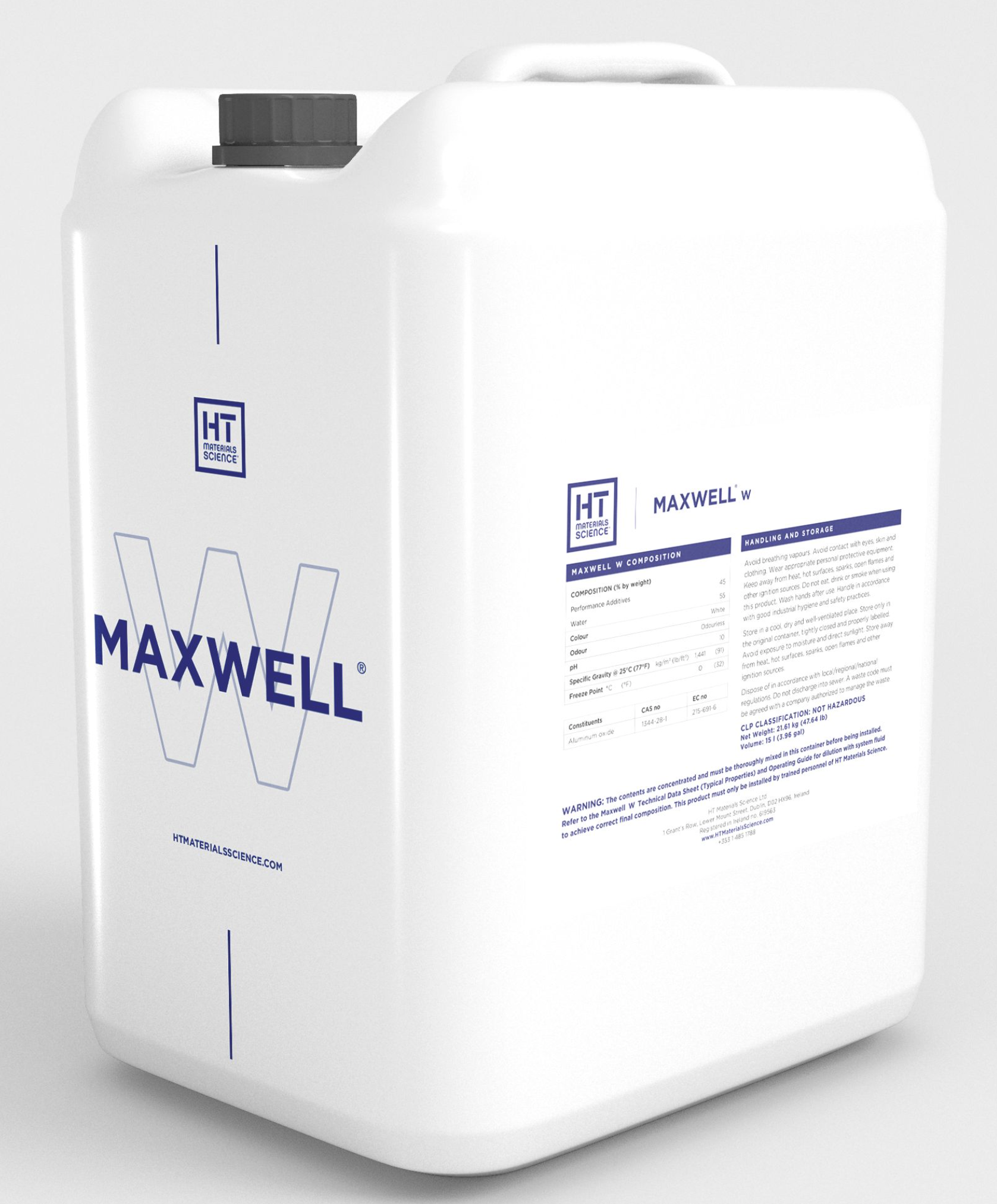Green Tech & Gadgets Article features Maxwell
Calling all real estate managers, factory operators, hospitals and data centers: This new heat transfer fluid can take 15% off your energy bill
![]()
Posted on June 28, 2024 by Karin Kloosterman in Green Tech and Gadgets, Technology
Dublin based HT Materials Science (HTMS) has developed a breakthrough energy savings solution called Maxwell that can slash operating costs, increase system capacity in new and existing builds and offer carbon credits.
Water is the universal heat transfer fluid for commercial and industrial HVAC systems. While water is plentiful and cheap there are additives to water which can improve its thermal capacity and that’s the elegant and planet-smart idea from Irish-Italian company HT Materials Science based in Dublin, Ireland.
HTMS has developed a heat transfer fluid branded Maxwell to increase the thermal capacity of water –– allowing it to store up to 20% more energy than water alone. At only a 2% additive to water, Maxwell can provide up to a 20% increase in performance and reduce greenhouse gas emissions in no small way.
HT Materials Science was founded in 2018 to develop a heat transfer fluid for commercial and industrial HVAC markets. Among its investors are Saudi Aramco Energy Ventures, which led a €15M Series A round in 2021, and Barclays Bank, via its Sustainable Impact Capital portfolio.
HT Materials Science CEO Tom Grizzetti tells Green Prophet: “There has certainly been development activity in heat transfer fluids over the last decade-plus. However, the combination of product stability, proven performance and client engagement has been elusive.
“With Maxwell, a multi-patented product, we bring to market a solution that was developed to satisfy both the science and the business sides of the equation. These efforts have resulted in a stable product with provable performance and ultimately significant client engagement,” he adds.
Maxwell is an engineered suspension of sub-micron aluminum oxide particles in a base fluid of water or water/glycol (that last part is significant since it means Maxwell can be used in systems that use either water or glycol as their base fluid)—resulting in reduced energy use, emissions, maintenance and costs; and an increase in system capacity.
Same temperature, less energy
Consider that heating and cooling are attributed to almost half of our planet’s energy consumption, and about 40% of carbon dioxide and equivalent carbon emissions.
Among HT Material Science’s first industrial clients is the German based alumina producer Almatis. By installing Maxwell into the plant’s cooling system, HTMS increased the system capacity by up to 20% while increasing operational output.
HT Materials Science is on a mission looking to expand throughout the Middle East as countries like the UAE and Saudi Arabia develop manufacturing and technology parks to keep production facilities like electric cars close to home.
Maxwell is a pretty neat fluid that will be a game changer for carbon accounting globally.
‑ Reproduced from original source
International EPD System Database lists Maxwell
HTMS are pleased to announce that after extensive due diligence by third-party environmental product specialists, Maxwell’s Life Cycle Analysis (LCA) has been approved and accepted by the International EPD System for listing on their database and website.
The full declaration is available here: https://www.environdec.com/library/epd11974
For most installations of Maxwell in Chilled Water Systems, the CO2 breakeven is less than one year on CO2 emissions saved, compared to the emissions generated during manufacturing and use of Maxwell, as shown in the LCA calculations. In many cases, the breakeven is just a few months.
The LCA assesses environmental impacts associated with all stages in the life cycle of a commercial product, process, or service. including materials procurement, production, shipping, installation, and End of Life (EOL). Maxwell is fully recoverable from the system fluid, and recyclable.
‑ Reproduced from original source




